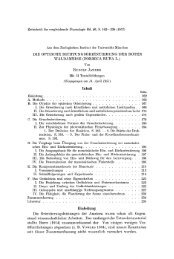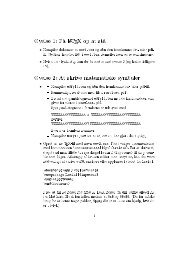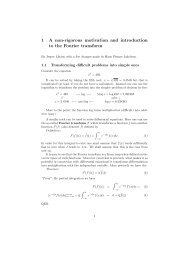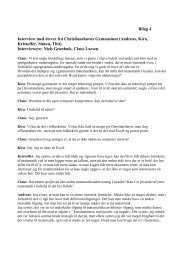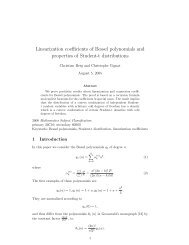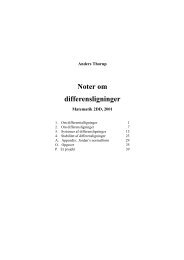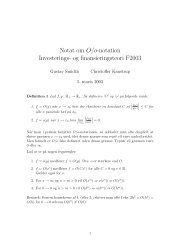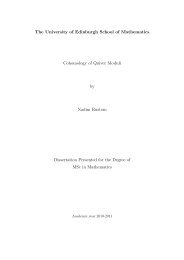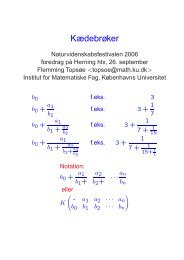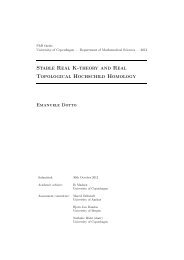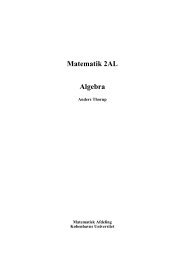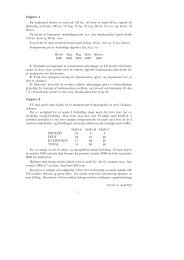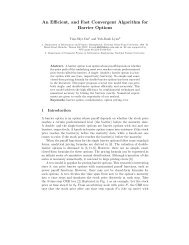Lecture Notes for Finance 1 (and More).
Lecture Notes for Finance 1 (and More).
Lecture Notes for Finance 1 (and More).
You also want an ePaper? Increase the reach of your titles
YUMPU automatically turns print PDFs into web optimized ePapers that Google loves.
2.1. THE ROLE OF FINANCIAL MARKETS 9<br />
With the assumption of strictly increasing U, the only way the second equality<br />
can hold, is if<br />
f ′<br />
(i ∗ 0 ) = (1 + r)<br />
<strong>and</strong> the first equality holds if<br />
D1U(c ∗ 0 , c∗ 1 )<br />
D2U(c ∗ 0, c ∗ 1)<br />
= (1 + r)<br />
We observe two significant features:<br />
First, the production decision is independent of the utility function of<br />
the agent. Production is chosen to a point where the marginal benefit of<br />
investing in production is equal to the ’interest rate’ earned in the market.<br />
The consumption decision is separate from the production decision <strong>and</strong> the<br />
marginal condition is provided by the market price. In such an environment<br />
we have what is known as Fisher Separation where the firm’s decision is<br />
independent of the shareholder’s utility functions. Such a setup rests critically<br />
on the assumptions of the perfect competitive markets where there is<br />
price taking behavior <strong>and</strong> a market <strong>for</strong> both consumption goods at date 0.<br />
Whenever we speak of firms having the objective of maximizing shareholders’<br />
wealth we are assuming an economy with a setup similar to that of the<br />
private ownership economy of which we may think of the second example as<br />
a very special case.<br />
Second, the solution to the maximization problem will typically have a<br />
higher level of utility <strong>for</strong> the agent at the optimal point: Simply note that<br />
any feasible solution to the first maximization problem is also a solution<br />
to the second. This is an improvement which we take as a ’proof’ of the<br />
significance of the existence of markets. If we consider a private ownership<br />
economy equilibrium, the equilibrium price system will see to that consumers<br />
<strong>and</strong> producers coordinate their activities simply by following the price system<br />
<strong>and</strong> they will obtain higher utility than if each individual would act without<br />
a price system as in example 1.<br />
Fisher Separation



